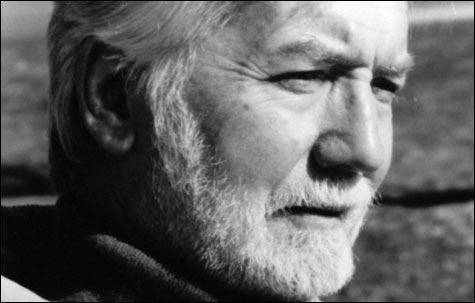
FUTURES PAST: The fall of empires hangs over Unsworth’s novel — Assyria’s, the Ottoman, Britain’s, and, ultimately, America’s. |
| Land of Marvels | By Barry Unsworth | Nan A. Talese/Doubleday | 288 pages | $26 |
If Barry Unsworth shares some traits with the protagonist of his Land of Marvels, so too does he seem to sympathize with his antagonist. Like his hero, John Somerville, a naive British archæologist, the Booker winner has chosen to dig into history, painstakingly unearthing a mound of Mesopotamian soil for clues about lives long gone. But whereas Somerville looks to the past to make his name, his nemesis, Alex Elliott, is peering into the future. Geologist Elliott is American, a natural forward-thinker, and, rather like the mischievous author, he has managed to insert himself into Somerville's dig, as well as the man's marriage, disrupting both as he scouts for oil."Oil is a commodity," says Elliott, acknowledging a slight from his host, who has denigrated Elliott's interest in things rather than people. "But it is the future of humanity, it will change the lives of millions. Millions of people, sir." The year is 1914, and as he goes on to describe how this relatively new fuel will affect the world, he is both prophetic and horribly, horribly wrong.

Predicting the future from nearly 100 years past would seem an easy task, but perspective is never simple for Unsworth as his characters look back not only to the Assyrian Empire, which has so entranced Somerville, but to the glory days of the British Empire. As war clouds gather over Europe, the assembled Brits sense that their time is coming to an end. They are casting their lots for a future none can foresee, making plans to divvy up the unstable Ottoman Empire and worrying about supply routes to still-British India. The fall of empires hangs over this book: Assyrian, Ottoman, British. And its underlying premise — the emergence of oil — suggests the fall of America's empire as well.
Not that Unsworth, a masterful storyteller, would ever spell this out. With his usual light hand, he keeps the story snapping along, setting up plot twists galore in an atmosphere that approaches a drawing-room comedy, complete with intrigues among the ruins. Yet Land of Marvels, his 16th novel, is surprisingly plot-heavy. He's no stranger to historical fiction, whether using its built-in stories first-hand (boarding a slave ship in his Booker-winning 1992 masterpiece Sacred Hunger) or through a character's obsession (as in 1999's Losing Nelson), and he's a master at inhabiting the types of the times, at making their moment come alive. But his characters typically take center stage. The times may be dramatic, but it's the people — their moral choices and frequent failings — that bring these worlds to life.
Not so with Land of Marvels. Despite the ingenious plotting, Unsworth gives his characters less leeway than usual. Somerville is a lost soul from the start, clinging to a fading dream; his fate is inevitable. So, too, is Elliott's rise: he's man of the future, and his faith never wavers. Only Somerville's wife, Edith, comes to some sense of enlightenment over the course of her own sordid adventures, and even those insights fade as her life settles back into normality. Perhaps the approaching war has frozen these characters. Perhaps the domino-like structure of the plot left little room for them to play other than their assigned roles. Or perhaps, most likely, the present for once weighed too heavily on the author. The result is enjoyable, but in the sense of a smart puzzle. Caught too much in these times, Land of Marvels falls short of timelessness.